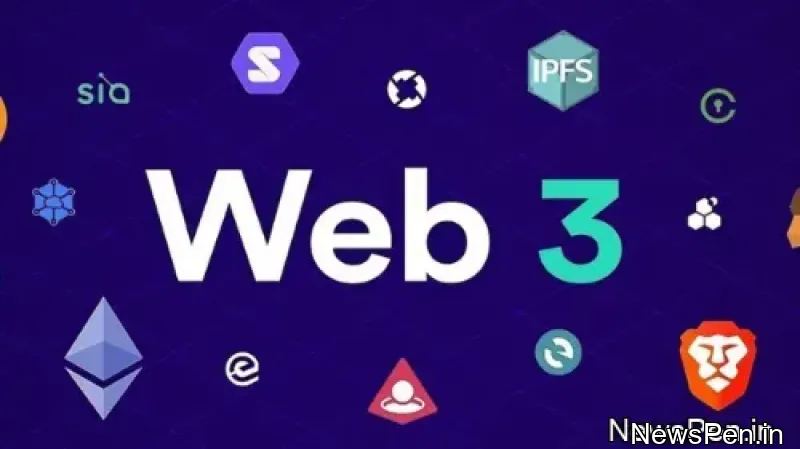Web 3.0: What the Internet's Next Generation Means for India

The phrase Web 3.0 is becoming more prominent as a result of the advent of NFTs and the metaverse, yet it is not a completely new phenomena.
Web 3.0 refers to the internet's next generation, in which websites and apps will be able to manage data in a human-like manner utilising technologies such as machine learning (ML), Big Data, and decentralised ledger technology (DLT), among others.
Web 3.0 was named the Semantic Web by Tim Berners-Lee, the creator of the World Wide Web, with the objective of developing a more autonomous, intelligent, and open internet.
Data will be networked in a decentralised manner, which would be a significant advancement over our current generation of the internet (Web 2.0), in which data is mostly held in centralised repositories.
Users and machines will both be able to interact with data. However, in order for this to happen, programmes must be able to interpret information both theoretically and culturally. Given this, the semantic web and artificial intelligence are the two pillars of Web 3.0.
WEB 3.0 and Whats for India
Global investors, according to reports, have agreed to spend millions of dollars on Indian Web3 start-ups, citing India's robust ecosystem of 4 million engineers, skilled IT operators, and a close-knit web3 community.
Coinbase Ventures, the investment arm of the American cryptocurrency exchange Coinbase, and Builders Tribe announced last week the beginning of a startup pitch session for Indian web3 entrepreneurs, with a prize pool of up to $1 million for the winners.
Cypher Capital, a venture capital company based in the UAE, has committed 40% of its $100 million blockchain fund to invest in Indian crypto and blockchain startups.
Similarly, General Catalyst, a US-based investment firm, expressed confidence in India, mentioning Web3 as one of its primary investment areas.
According to Rajan Anandan, managing director at Sequoia Capital, India has a lot of promise in the form of a growing number of enterprises working on web3 initiatives, and this can help more Indian entrepreneurs flourish abroad.
During a conversation with Shailendra Katyal, managing director for Lenovo PC and smart devices in India, at the Lenovo Tech World India conference, Anandan mentioned that web3 startups in India were among the most promising among software-based firms.
Web 3.0 is likely to be a game changer for India in all industries in the near future.
It must, however, realise that Web 2.0 is centred on search engines, but Web 3.0 is focused on discovery engines.
Furthermore, it is expected that India can alter its income return by embracing the potential of the semantic web, which the rest of the world is keen to investigate. If the proper legislation and regulations are in place, Web 3.0 in India is projected to enhance people's lives while also creating more employment and opportunities for a prosperous economy.
According to Business Line, CoinSwitch Kuber's creator and CEO Ashish Singhal recently stated, "What India missed out on during internet 1.0, building TCP/IP, HTTP, browsers, or any other internet infrastructure, we get that chance now. Tomorrow’s Amazon will come from India and probably be built on blockchain, for the world to use."
Polygon (MATIC), sponsored by Sequoia Capital, is a famous example of an Indian Web3 startup built for the worldwide market. It's a layer-two scaling solution that tackles various Ethereum blockchain constraints.
Over 40 top venture capital firms joined in a $450 million round lead by Sequoia Capital.
 Added on:
05-Apr-2022
Added on:
05-Apr-2022
DISCLAIMER: The news content above is submitted by Newspen users and also scrapped from external websites.







